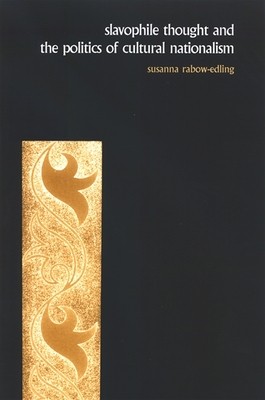
- We will send in 10–14 business days.
- Author: Susanna Rabow-Edling
- Publisher: State University of New York Press
- ISBN-10: 0791466949
- ISBN-13: 9780791466940
- Format: 15.8 x 22.5 x 1.2 cm, minkšti viršeliai
- Language: English
- SAVE -10% with code: EXTRA
Slavophile Thought and the Politics of Cultural Nationalism (e-book) (used book) | bookbook.eu
Reviews
Description
Susanna Rabow-Edling examines the first theory of the Russian nation, formulated by the Slavophiles in the second quarter of the nineteenth century, and its relationship to the West. Using cultural nationalism as a tool for understanding Slavophile thinking, she argues that a Russian national identity was not shaped in opposition to Europe in order to separate Russia from the West. Rather, it originated as an attempt to counter the feeling of cultural backwardness among Russian intellectuals by making it possible for Russian culture to assume a leading role in the universal progress of humanity. This reinterpretation of Slavophile ideas about the Russian nation offers a more complex image of the role of Europe and the West in shaping a Russian national identity.
EXTRA 10 % discount with code: EXTRA
The promotion ends in 22d.10:05:49
The discount code is valid when purchasing from 10 €. Discounts do not stack.
- Author: Susanna Rabow-Edling
- Publisher: State University of New York Press
- ISBN-10: 0791466949
- ISBN-13: 9780791466940
- Format: 15.8 x 22.5 x 1.2 cm, minkšti viršeliai
- Language: English English
Susanna Rabow-Edling examines the first theory of the Russian nation, formulated by the Slavophiles in the second quarter of the nineteenth century, and its relationship to the West. Using cultural nationalism as a tool for understanding Slavophile thinking, she argues that a Russian national identity was not shaped in opposition to Europe in order to separate Russia from the West. Rather, it originated as an attempt to counter the feeling of cultural backwardness among Russian intellectuals by making it possible for Russian culture to assume a leading role in the universal progress of humanity. This reinterpretation of Slavophile ideas about the Russian nation offers a more complex image of the role of Europe and the West in shaping a Russian national identity.


Reviews